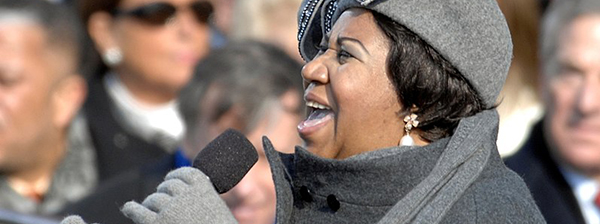
As Aretha Franklin’s health was failing, accolades poured in. Her natural talent and hard work catapulted her to fame and made her the preeminent singer of her time. But she was so much more than that — she was an icon, a leader.
Leadership is a product of time and place. Franklin’s personal history — and that of her father — meant that her strong voice and messages resonated in the 1960s. Hers was a message of overcoming adversity and hope against all odds. It was a message that claimed dignity for all. RESPECT proved to be a signature song for Franklin and R&B vocalists. The song demanded the reciprocal respect we all richly deserve.
Now is the time to pay homage to her signature message. This year has been marred by moral failures and widespread lack of respect for human dignity. It would be well to resurrect a culture of mutual respect in the workplace, in national and local politics, in religious organizations, and in the world of entertainment.
Respect is a key characteristic of effective leadership, yet its significance is all-too-often neglected. Leadership consists largely of persuading people in organizations to take particular courses of action. Persuasion is not feasible when followers do not respect their leaders. When respect is lacking, persuasion is corroded, and a culture of fear, incivility, and coercion emerges.
A recent study of almost 20,000 employees found that those surveyed ranked respect as the most significant leadership behavior. In the Harvard Business Review, Kristie Rogers, Marquette University assistant professor of management, posits two types of respect: respect owed to all equally and that earned by those who go above and beyond. While many leaders establish procedures to reward those who go “above and beyond,” the civility and respect due to everyone is oftentimes lacking. Barbara Kellerman has written that toxic leaders create settings of this sort. They “lead” by threat of punishment and create organizational chaos. Organizations characterized by toxic leadership are unproductive, demoralizing, and dysfunctional.
Franklin’s performances were not treatises on effective leadership. Nevertheless, she drew our attention to the respect due to an ordinary person with ordinary hopes and dreams. She asked for the respect due to all, and she earned the respect due to her amazing presence and talent. As we mourn her passing, we could do no better than to consider how best to recapture her enduring optimism and reclaim the culture of respect she asked for.
